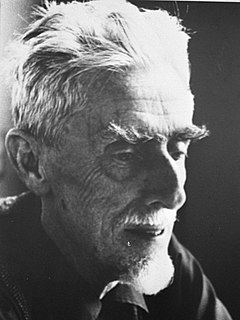A Quote by Diogenes
Solon used to say that speech was the image of actions; . . . that laws were like cobwebs, - for that if any trifling or powerless thing fell into them, they held it fast; while if it were something weightier, it broke through them and was off.
Related Quotes
Scilurus on his death-bed, being about to leave four-score sons surviving, offered a bundle of darts to each of them, and bade them break them. When all refused, drawing out one by one, he easily broke them, thus teaching them that if they held together, they would continue strong; but if they fell out and were divided, they would become weak.
There is something in such laws that takes the breath away. They are not discoveries or inventions of the human mind, but exist independently of us. In a moment of clarity, one can at most discover that they are there and take them into account. Long before there were people on the earth, crystals were already growing in the earth's crust. On one day or another, a human being first came across such a sparkling morsel of regularity lying on the ground or hit one with his stone tool and it broke off and fell at his feet, and he picked it up and regarded it in his open hand, and he was amazed.
Jesus Christ left us an example for our daily conduct. He felt no bitter resentment and He held no grudge against anyone! Even those who crucified Him were forgiven while they were in the act. Not a word did He utter against them nor against the ones who stirred them up to destroy Him. How evil they all were. He knew better than any other man, but He maintained a charitable attitude toward them.
I used to ride horses and I remember one day I was working with a horse and we were having it jump, you know? There was a competition and so we were doing a test run and the horse fell on top of my body. I was a kid, like 7 years old. It took them a long time to take the horse off of my body after it had fallen.
I believe there are an infinite number of laws of the universe and that all progress or dreams achieved come from operating in a way that's consistent with them. These laws and the principles of how to operate in harmony with them have always existed. We were given these laws by nature. Man didn't and can't make them up. He can only hope to understand them and use them to get what he wants.
We've had one of these before, when the dot-com bubble burst. What I told our company was that we were just going to invest our way through the downturn, that we weren't going to lay off people, that we'd taken a tremendous amount of effort to get them into Apple in the first place; the last thing we were going to do is lay them off.
I loved them all the way one loves at any age -- if it's real at all -- obsessively, painfully, with wild exultation, with guilt, with conflict; I wrote poems to and about them, I put them into novels (disguised of course); I brooded upon why they were as they were, so often maddening don't you know? I wrote them ridiculous letters. I lived with their faces. I knew their every gesture by heart. I stalked them like wild animals. I studied them as if they were maps of the world -- and in a way I suppose they were.
My mum used to wear the guys' Chesty Bonds tanks, and I used to end up wearing them after she'd finish with them. She's a painter, and they would be covered in paint splatters. She would wear them and wear them until they were super-soft, and then I'd get them. But I was just a kid, so they were like a dress on me.
They [the mathematicians of the Enlightenment] defined their terms vaguely and used their methods loosely, and the logic of their arguments was made to fit the dictates of their intuition. In short, they broke all the laws of rigor and of mathematical decorum. The veritable orgy which followed the introduction of the infinitesimals... was but a natural reaction. Intuition had too long been held imprisoned by the severe rigor of the Greeks. Now it broke loose, and there were no Euclids to keep its romantic flight in check.
During intermission she peeked out at the theater, watching it refill. When it was almost full and the lights blinked on and off, she saw three people file in through the center door and her breath caught. Time lapsed as they walked down the center aisle: three teenage girls all in a row. They were so big, so bright, so beautiful, so magnificent to Carmen’s eyes that she thought she was imagining them. They were like goddesses, like Titans. She was so proud of them! They were benevolent and they were righteous. Now, these were friends.







































